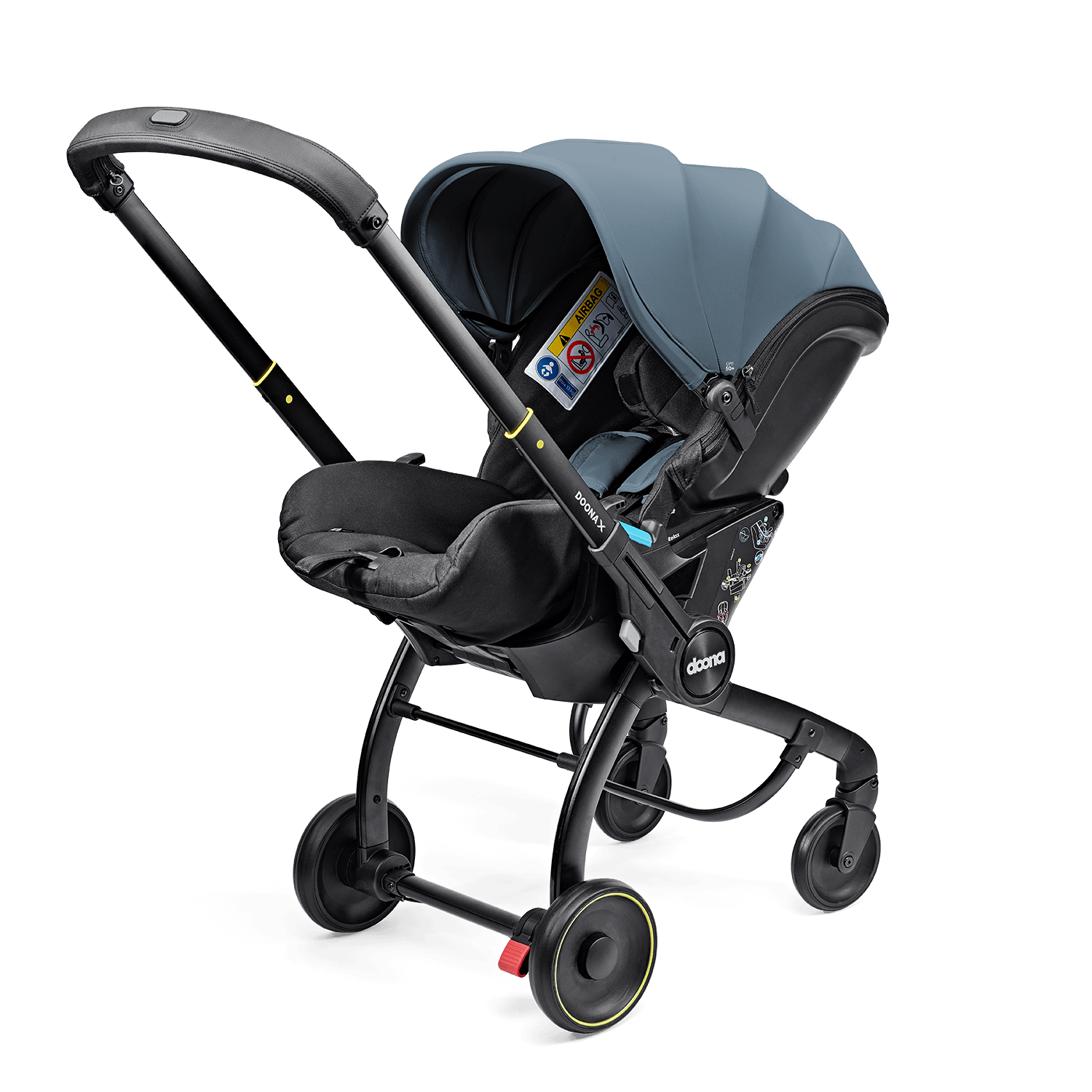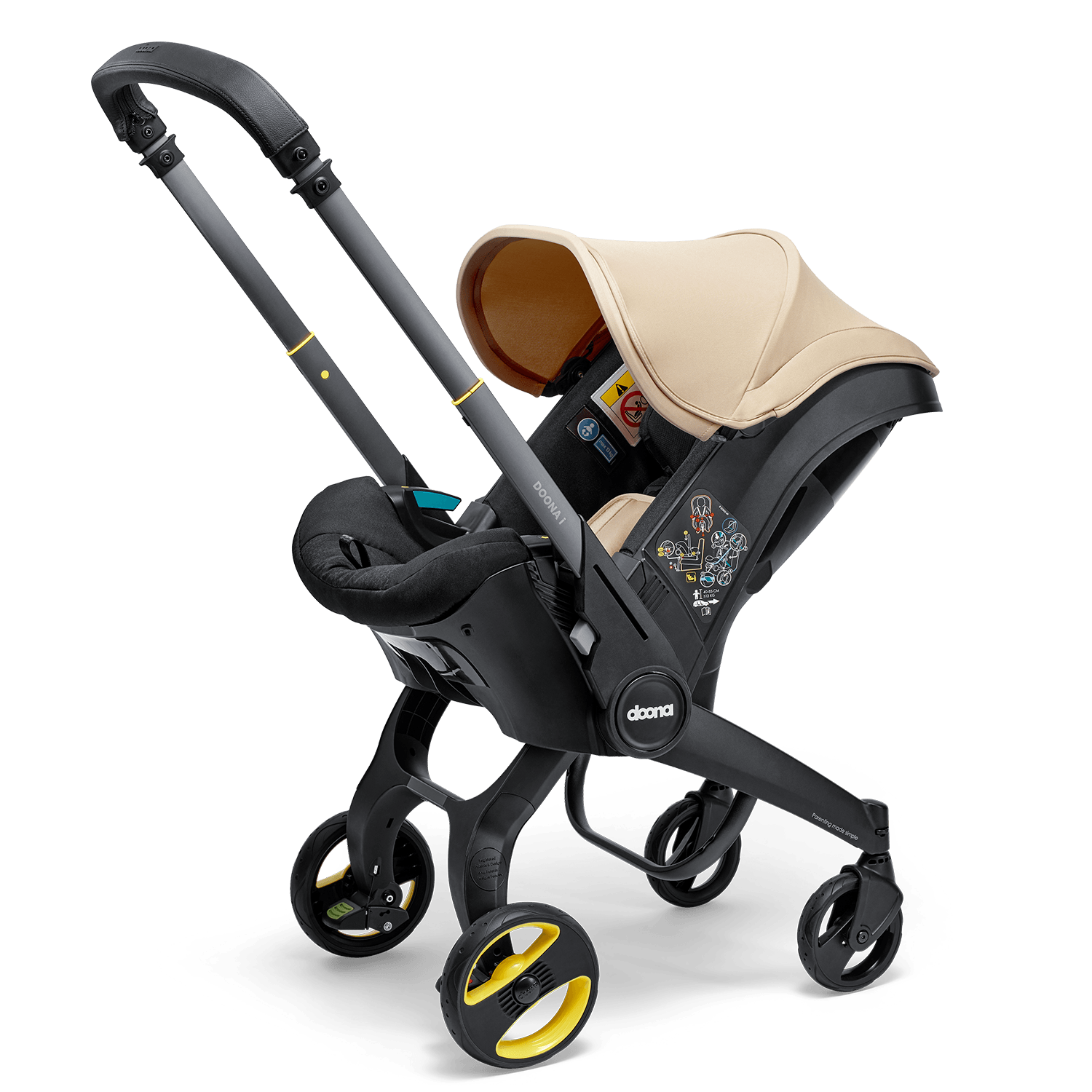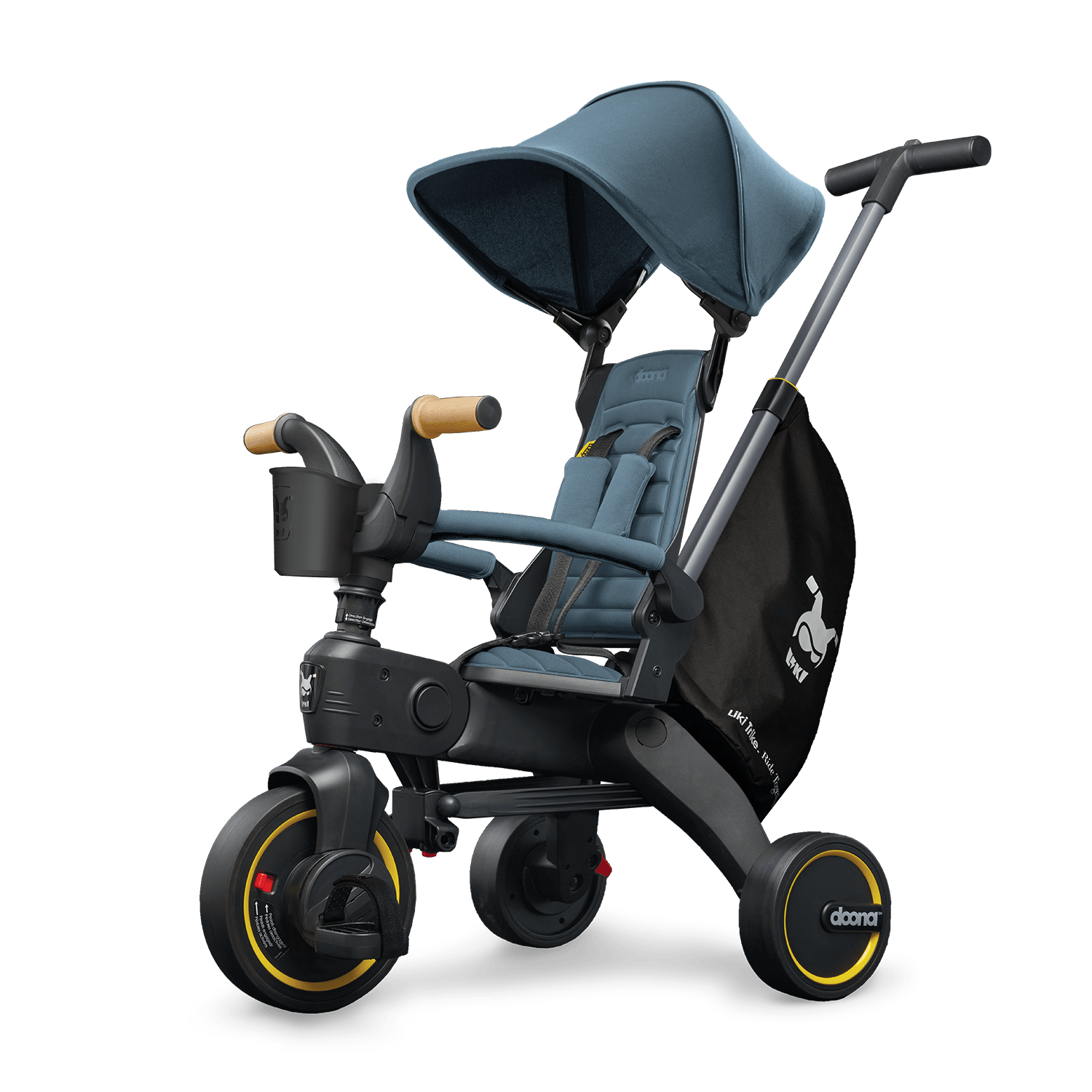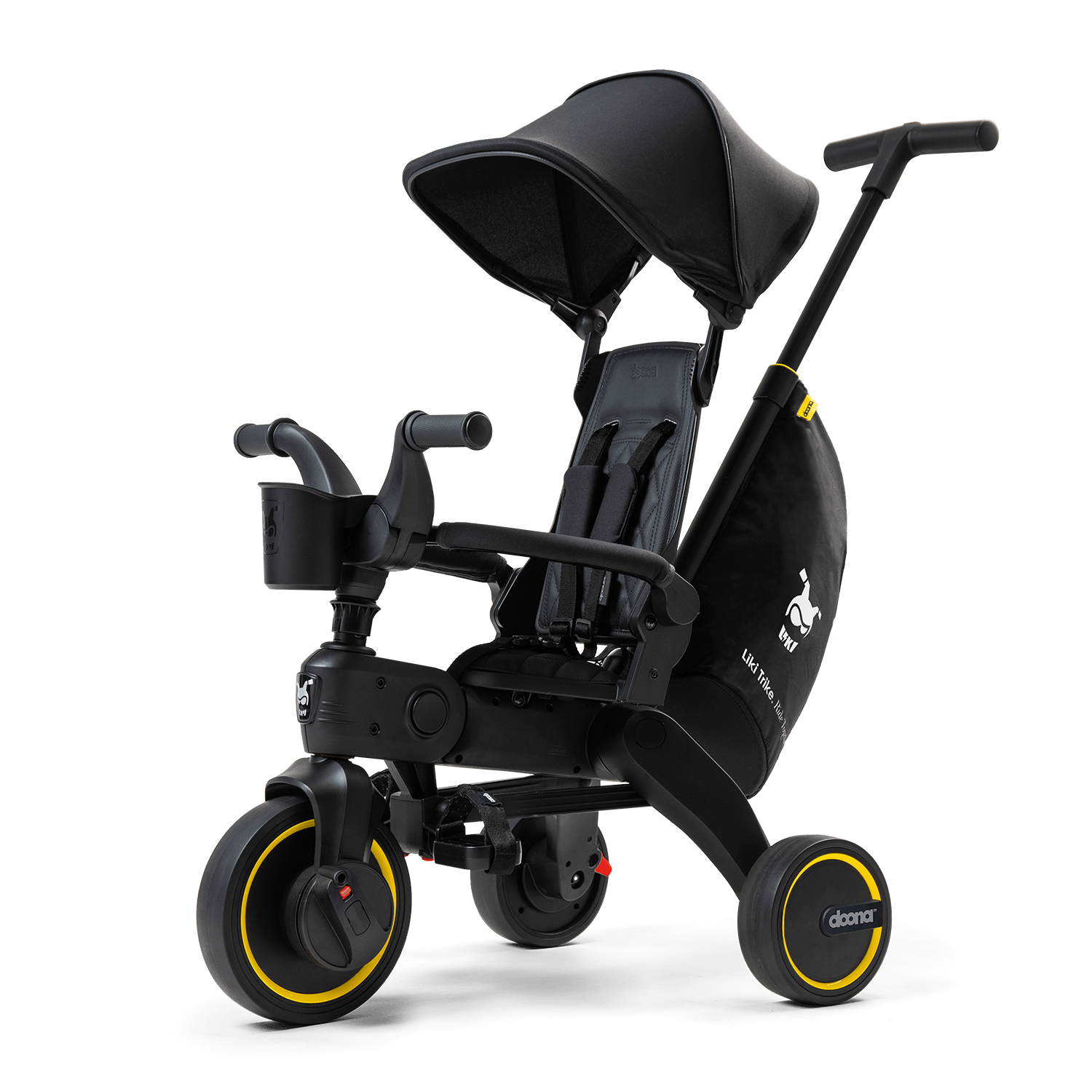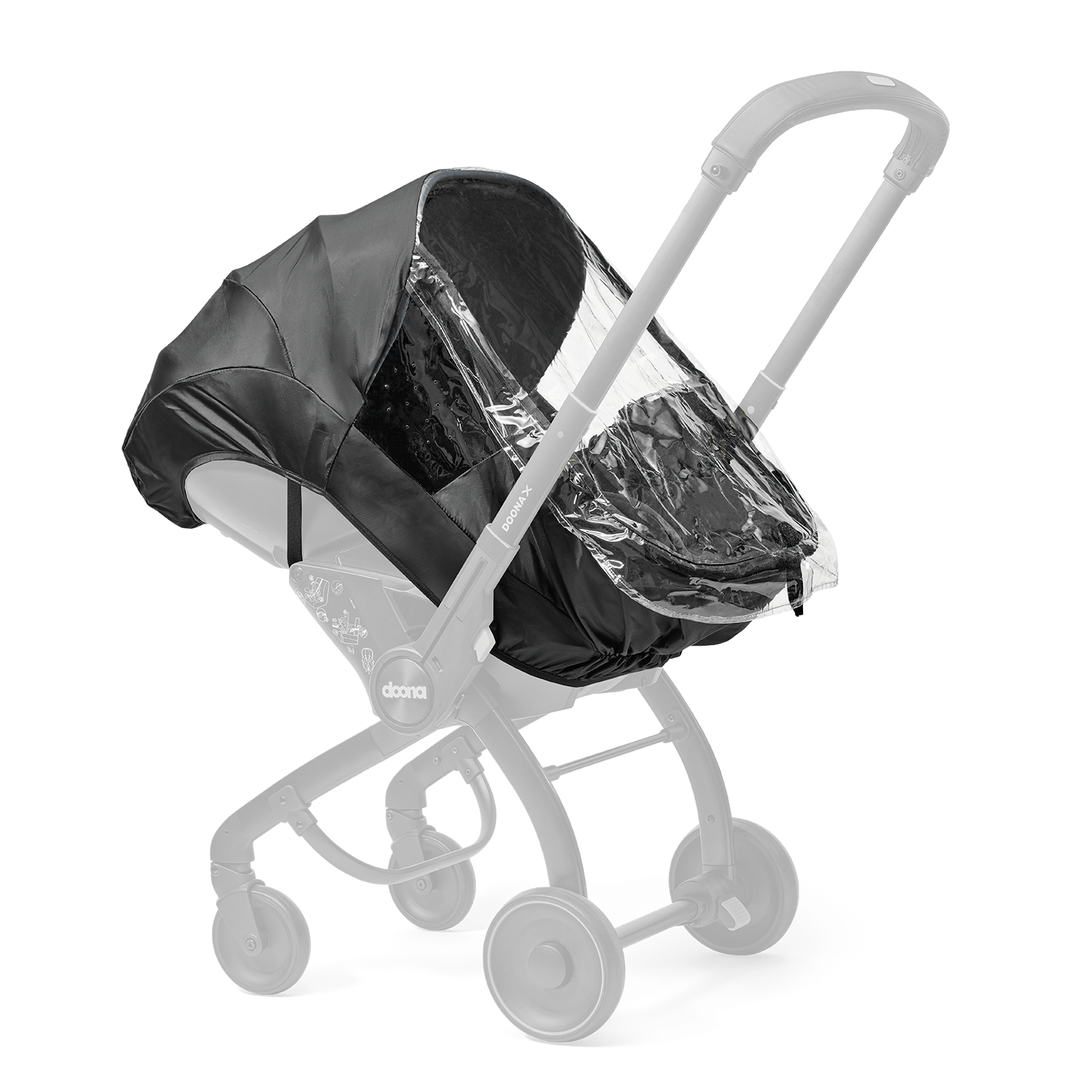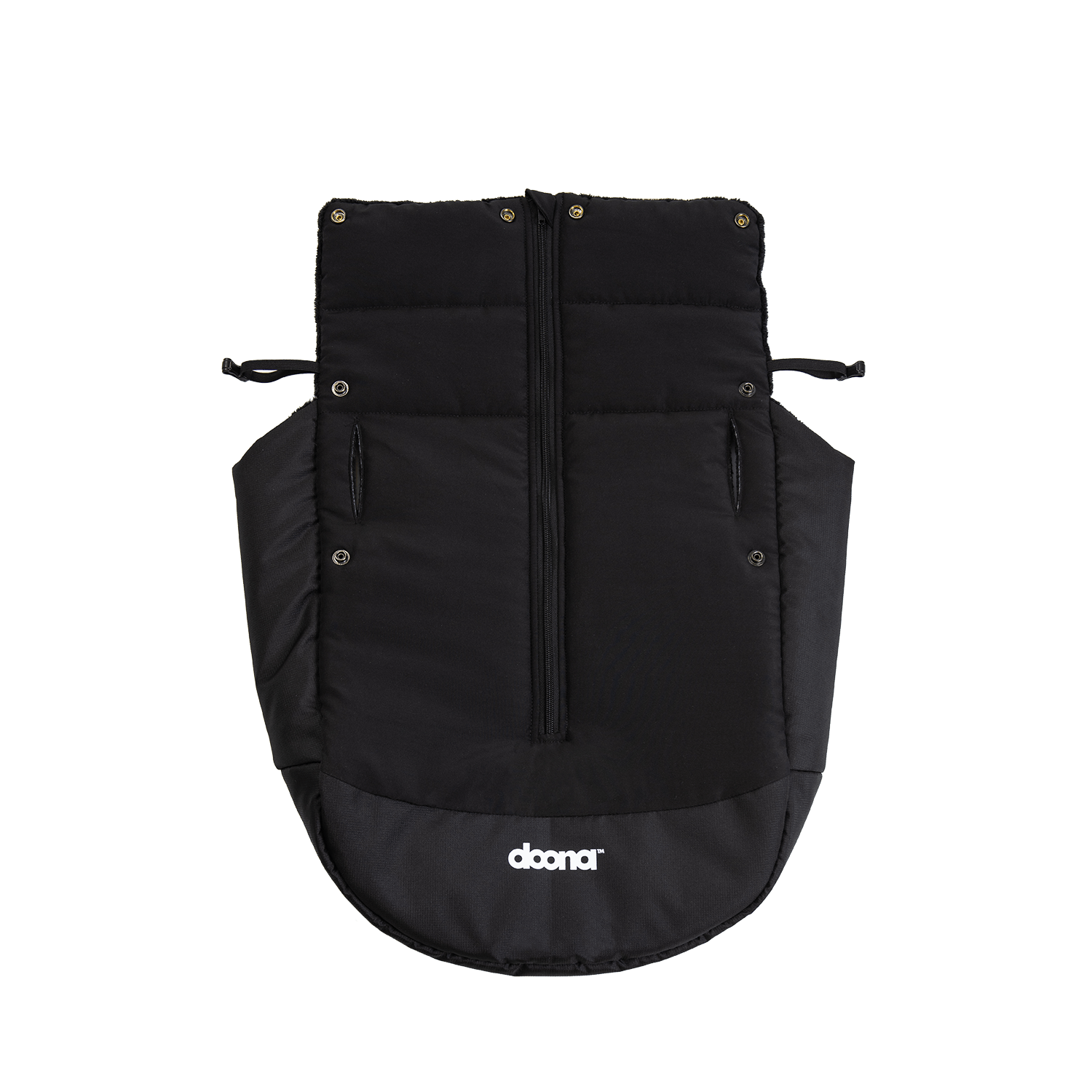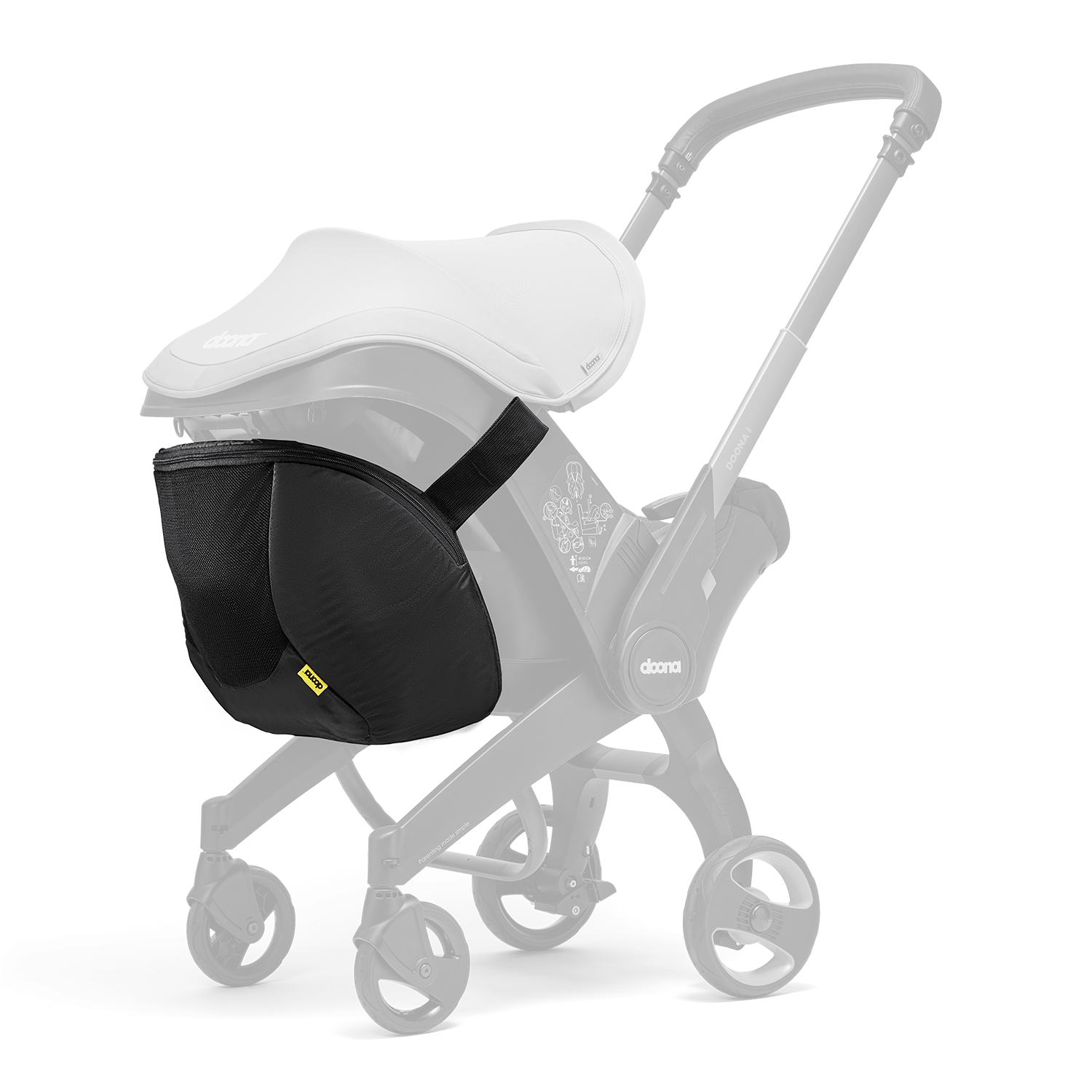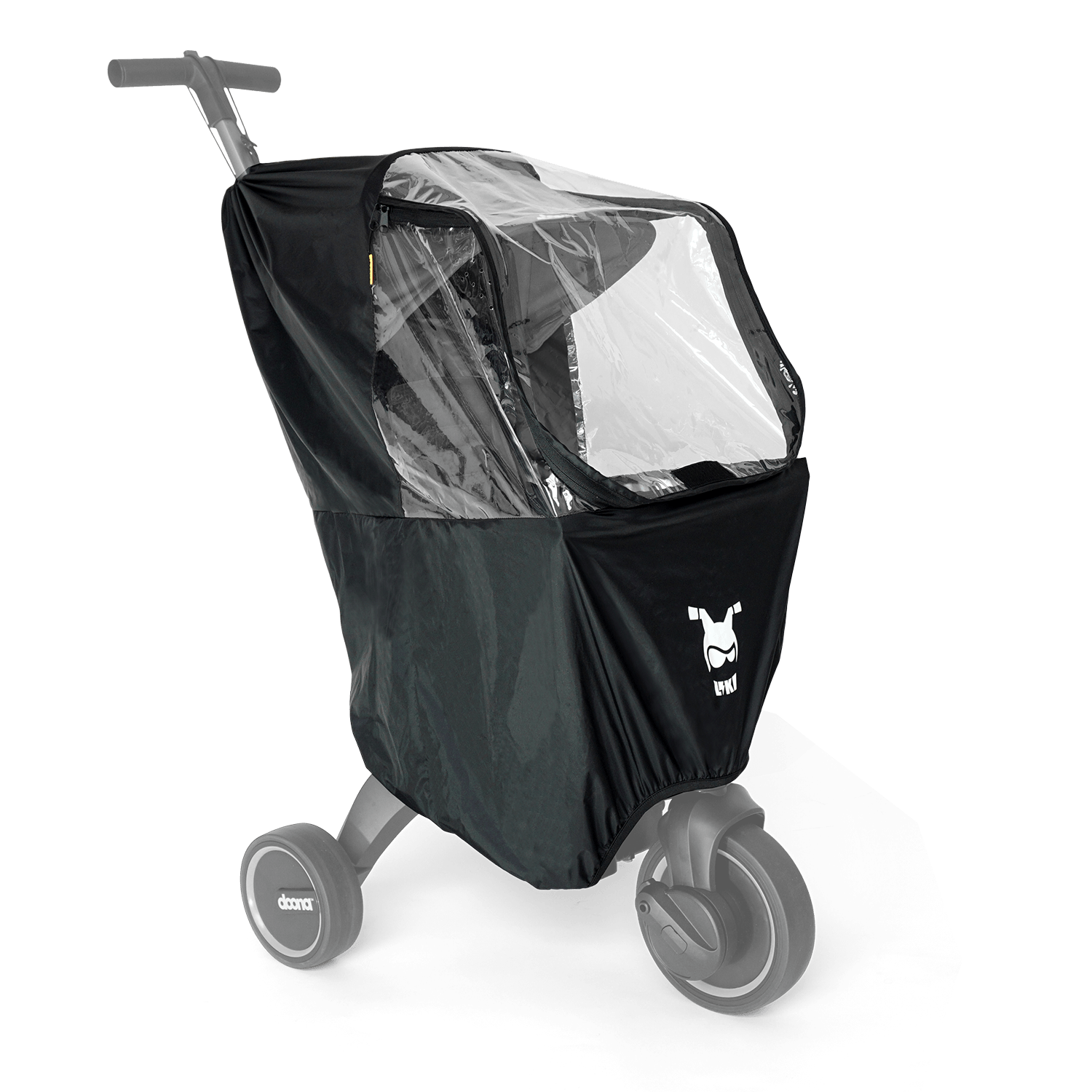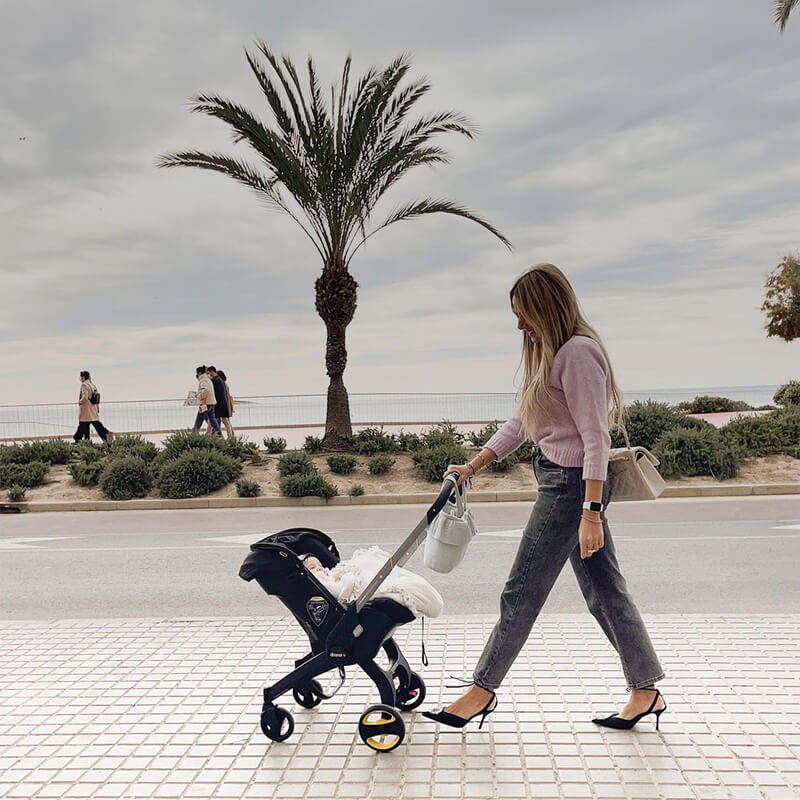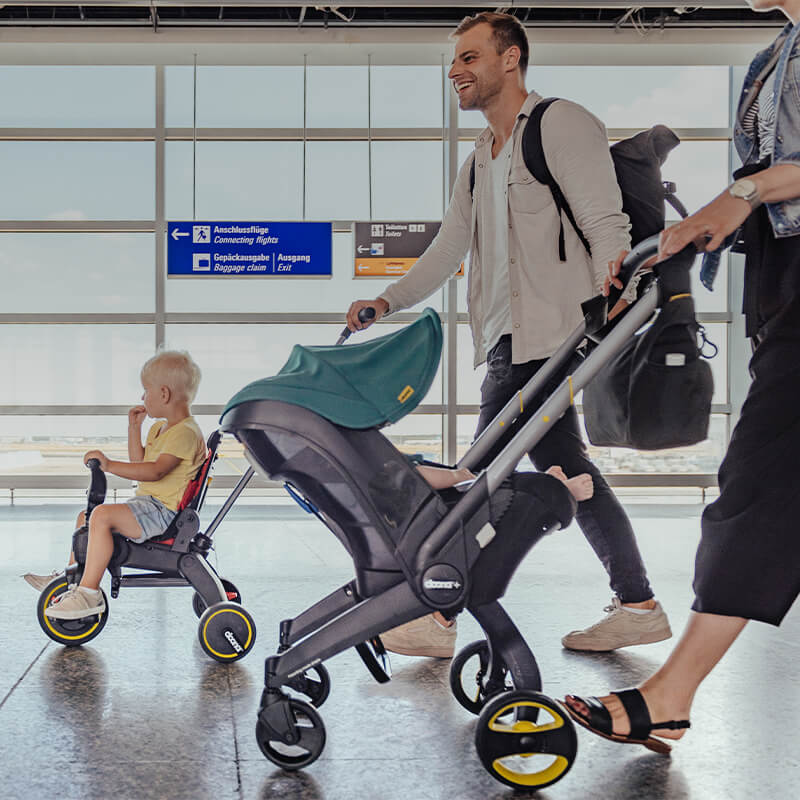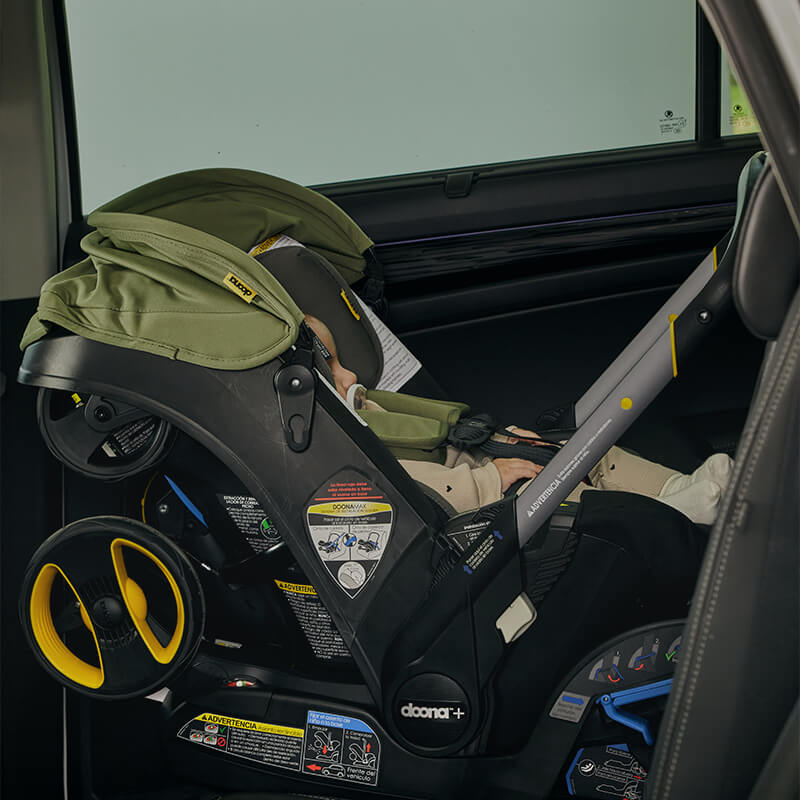Everything you need to know about your baby’s first year
As a new parent, your baby’s first year can be both exciting and overwhelming. While you may want to spend all day snuggling your newborn, it’s important to be prepared and knowledgeable in order to keep your baby safe, healthy and happy.
At Doona, our purpose is to help make your life as a new parent as simple and satisfying as possible. So, whether you’re getting ready to bring your baby into the world, or are looking for a refresher on everything you have to look forward to over the year ahead, we’ve curated our best tips for new parents and must-know details along the way. All to help you embrace your baby’s first year with as much knowledge and excitement as possible.
Before the birth
As you prepare for the arrival of your little one, it’s essential to consider the tools you’ll need. We believe that every soon-to-be parent should have a few tried and true newborn necessities. So, before you pack your bags for the hospital, make sure you’ve checked off your checklist of must-haves for first-time parents.
From toys to tubs, take the time to think about what items are crucial for your family. This can be especially important when it comes to what you’ll need when bringing your newborn home from the hospital. In addition to an adorable outfit, one of the most important things you will need is an excellent car seat. Consider investing in a car seat/stroller combo like Doona, which will keep your newborn safe and give you peace of mind, while also moving around easier.
Birth – 1 month
Congratulations! Your baby is here! Before you bring your baby home, it’s important to know how to handle them safely and with proper care. Remember to wash your hands before touching your baby until their sensitive immune system improves. Also, be gentle and support their head and neck. Your newborn will need lots and lots of sleep but won’t yet sleep through the night. So, be sure you fully understand safe sleeping guidelines for babies and the risk and prevention of SIDS before you leave the hospital.
You’ll also need to master feeding your little one to ensure they retain a healthy weight, whether you’re breast, bottle, or formula feeding. Be sure to get help with breastfeeding issues, such as latching, if necessary. If you choose to bottle-feed, be sure to understand proper pump, bottle, and other feeding accessory cleaning and sanitizing techniques. You will also need to have a tactic for safely storing milk and monitoring it for expiration in order to maintain the best nutrients in your baby’s milk and avoid getting them sick.
1 – 2 months
While it's all sponge baths for the first few weeks, once the umbilical cord falls off and any wounds heal, it will be all about bath time for the rest of your baby’s first year. Be sure you have the proper tools and knowledge to keep them safe and supported. Check for skin issues and use gentle baby safe products for both laundry and bathtime. This means also knowing what to do to care for your baby if they get diaper rash.
As your baby grows, you will start to identify different crying sounds, and notice changes in their weight. Tummy time is important for bonding and proper development, so it’s a good idea to join in with your baby if you can. If your doctor provided medication or supplements such as Vitamin D, be sure you have a system for ensuring your baby receives them and know what your baby cannot take too. Keep in mind, important vaccinations will be coming up at their 4 week well visit with their pediatrician.
2 – 4 months
In months 2-3, your baby will require more tummy time and additional vaccines at the 2-month well visit with their pediatrician. While you should have a solid understanding before taking your baby home from the hospital, now is a great time to check that you’re 100% certain about car safety.
Now, here’s something to look forward to: your baby is likely to start sleeping through the night at about 3 months old. Before this transition, we recommend that you go through our daytime nap tips for new parents. Not to worry, soon you’ll notice that your baby is less fussy, and you’ll hopefully get more restful sleep too. This is a great time to check in on whether or not you need breastfeeding support. Consult your pediatrician about the best resources available in your area.
4 – 7 months
During the first year of your baby’s life, playtime becomes increasingly important for their development. As your baby grows, they can benefit from toys that stimulate their senses, creativity, and motor skills. At around 4-7 months old, teething toys can be particularly useful to help your child deal with discomfort. Make sure to check out our guide on tips for teething so you know just how to help when the time comes.
As your baby’s teeth start to come through, it’s important to establish a good dental hygiene routine to keep their mouths clean and healthy. Luckily, you’ll also be able to look forward to another milestone with a lot of smiles and giggling at around 4-6 months. This is the perfect time to introduce solid foods. Be sure to assess if they are ready for baby food and maybe even try making some yourself!
7 – 9 months
As time passes, your baby will start eating more solid foods, and they may be ready for baby-safe utensils. It’s key to be mindful of potential signs of allergies as you introduce new foods and know common food choking hazards. Sign up for a baby CPR class and make sure all caregivers know what to do in case of emergencies.
Your baby will also start to move around a lot more, so it’s crucial to baby-proof your home to keep them safe. This stage may also bring about separation anxiety for your baby, and sleep may become challenging for both them and you. Taking care of yourself is crucial to being the best caregiver for your infant, so remember to prioritize self-care for you and your partner alongside caring for your little one.
9 months and up
Around 10 months old, your baby’s activity ramps up as they move and explore more. At 12-15 months old, they may even start taking their first steps. This is an exciting time, but it’s important to thoroughly baby-proof your home for their activity level and age. Continuously eliminate all of the choking hazards around the home so you can keep your baby safe.
By this time, your baby is starting to grasp the basics of sleeping and eating, as well as their mobility. This means another incredibly important milestone is on the horizon! At around the one year mark, your baby will start producing longer sounds, and soon after, you can look forward to their first words!
While there is so much more to know, we hope this guide for new parents on baby’s first year helps make your life simpler and keeps you feeling confident about the milestones and memories ahead! For more tips for new parents, keep up with our parenting tips by visiting our blog. Until then, we hope you enjoy the most fun, happy, and healthy time during your baby’s first year!
